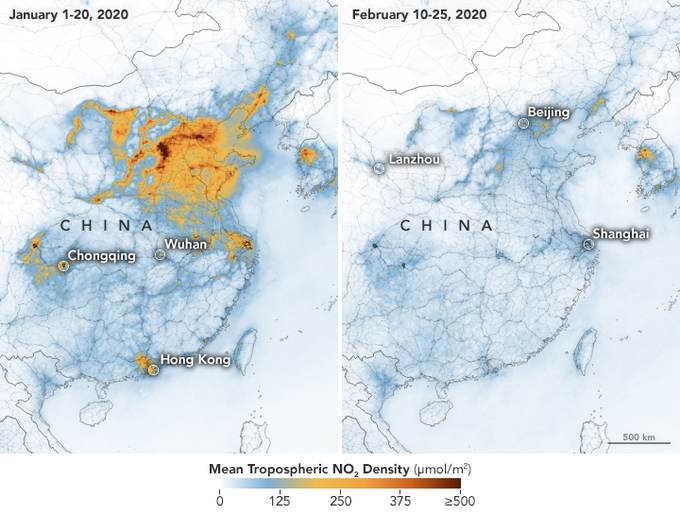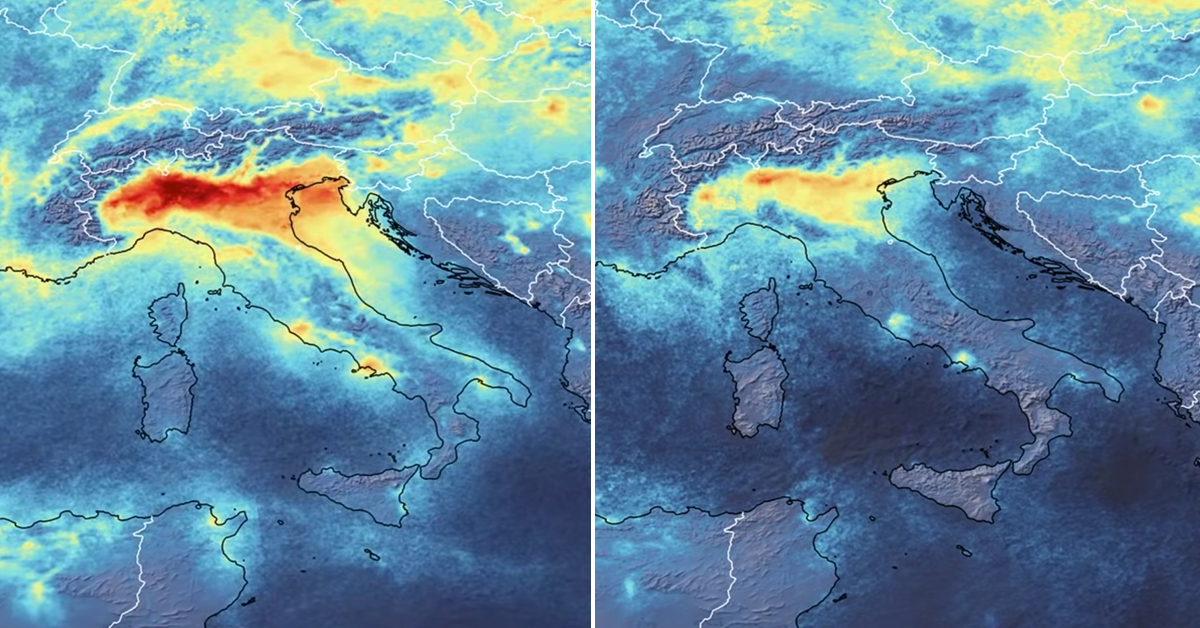What lessons can be learned from COVID-19, and how might they impact policy and solutions with regard to AGW?
A picture says more than a 1000 words:

Two pictures say more than 2000 words:

Lessons can be learned from a crisis, when the causes of the crisis are understood. So, what caused the impact of COVID-19? I believe the causes are two-fold:
1) Of, course the disease itself. Although no one can say with certainty how the disease came into being, it is clear that it could rapidly spread itself around the world due to globalisation. Globalisation is caused by neoliberal policies, predicated on neoclassic economic theories of endless growth. These policies cause the outsourcing of jobs, planet-wide shipments of goods and mass tourism.
2) The context in which the disease can successfully cause lots of casualties. Due to neoliberal policies, industries like Big Oil and Big Auto have caused massive air pollution, severely impacting lung development and health, which is obviously ideal for the respiratory diseases caused by COVID-19. The same neoliberal policies have also given free rein to industries like Big Pharma, Big Agro, Big Sugar, Big Tobacco to parasitically extract profit from the health of the general population.
In my view, there are two options after the crisis is over:
1) Treating the symptoms: Manufacturing vaccines and medications, developing plans for mass surveillance, massive bail-outs that benefit large corporations and further enslave populations. This will naturally lead to zero structural changes to the status quo, and future crises will be assured, instead of mitigated and prevented.
2) Taking away the causes: Putting an end to and reverting neoliberal policies, by switching to alternative economic theories that are more in line with laws of nature and universal moral principles. Given the goal of these neoliberal policies, ie endlessly increasing and concentrating wealth, this wealth will fight extremely hard to prevent any change to the status quo. An additional problem is the decade-long cultural condition of a heavily addicted and perverted majority of the population.
What lessons will be learned?
